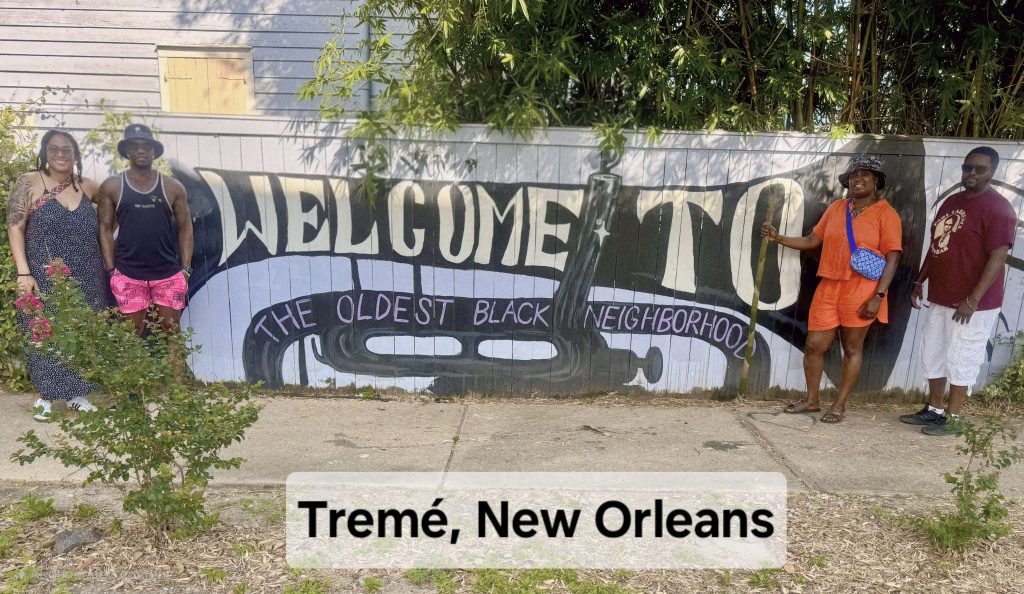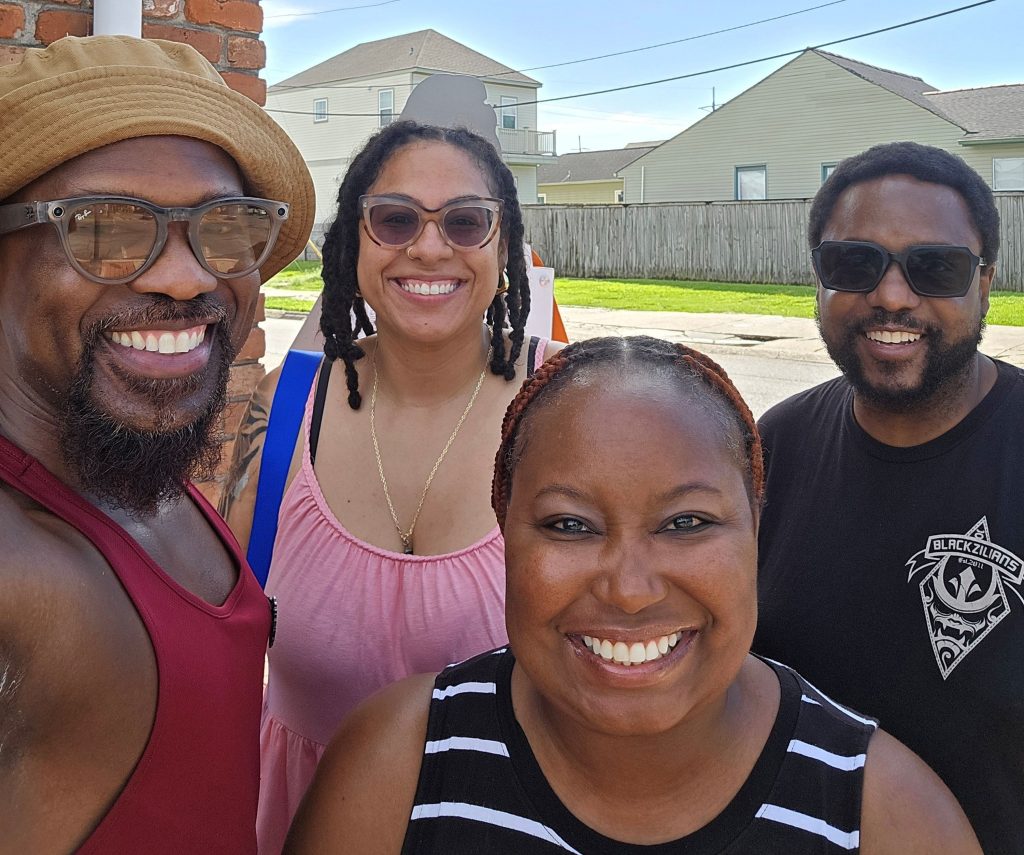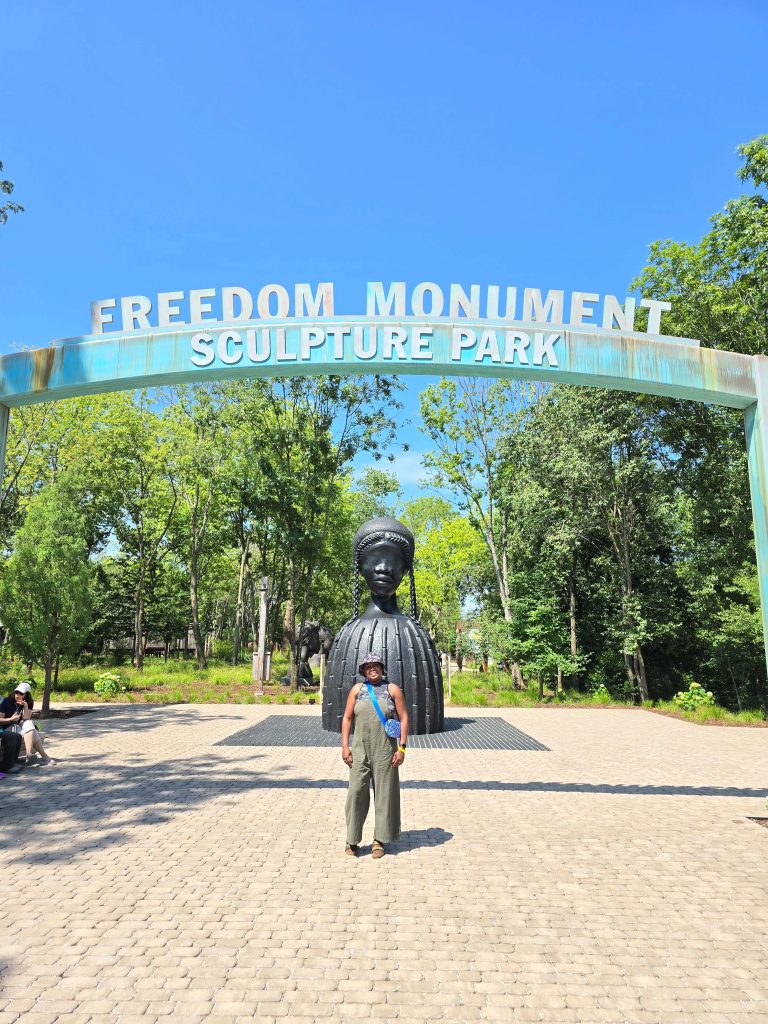Looking Back to Move Forward

Students of Washington D.C.’s Dunbar High School walk in the footsteps of trailblazers such as the first Black graduate of the U.S. Naval Academy, the first Black U.S. Senator elected by a popular vote, and the head academic researcher on Brown v. The Board of Education. Established in 1870 as the Preparatory High School for Colored Youth and eponymously named in 1916 for the celebrated poet, Paul Laurence Dunbar, the school remains the first and oldest public high school for Black students.
Considering this distinctive history, school officials chose to center student learning around Sankofa, a principle derived from the Akan people of Ghana signifying the primacy of remembering the past to make positive progress in the future. And these students’ future is informed by four teachers who joined together to craft a Fund for Teachers fellowship researching the African American experience across five states in the Deep South.
“Collectively, based on student townhalls, class discussions, and private conversations with students, our students seem disconnected from society in that they feel that, as teenagers, they can’t make a difference in society or that their voice doesn’t matter, which directly connects to our school’s values of activism and pride,” wrote team leader Dr. Shelina Warren in her grant proposal. “More importantly, our students’ lack of historical context helps play a considerable role in this disconnect, as they see the Civil Rights Movement of the 1960s as a study of long-ago history, distancing the powerful movement from contemporary struggles. Sadly, many of our African American students, as well as our ELL students, do not know much about African American history.”

The team’s itinerary included stops at historically-relevant sites, such as the home of Medgar Evers, the National Center for Civil & Human Rights in Atlanta, and 16th Street Baptist Church in Birmingham. Less prominent locations holding equal significance were the Emmett Till Interpretive Center in the Mississippi Delta, the Freedom Monument Sculpture Park in Montgomery and TEP Center in New Orleans’ Lower Ninth Ward where they met Dr. Leona Tate, who – with two other six-year-old girls – integrated their elementary school an hour before Ruby Bridges did the same across town.

Their fellowship ran the gamut of emotions, from experiencing the story of slavery at the Whitney Plantation outside of New Orleans to later that day taking a walking tour of Tremé within the city. “Teachers from the first Black high school in the Unites States exploring the first Black neighborhood in the United States – so powerful!” said Dr. Warren.
“Experiential learning opportunities such as those provided by the Fund for Teachers fellowship are so beneficial for students,” said DCPS Chancellor, Dr. Lewis D. Ferebee. “We’re proud of how Dr. Warren and her social studies team at Dunbar make connections for students with a real-life history lesson—imparting knowledge through tours of renowned civil rights landmarks across the South.”
Two quotes seemed to epitomize this fellowship for the team: One explained in a museum and another found in a contemporary painting hanging in a gallery.
“I’ve always used the phrase ‘Speaking Truth to Power.’ but I never knew where it came from until visiting the Civil Rights Museum in Memphis,” said Dr. Warren. “They had an exhibit there on the originator of this phrase, Bayard Rustin, who used these words to explain that justice requires both legal change and personal transformation.”
The second quote, painted on the side of an art studio in New Orleans, captured how Dr. Warren plans to use new insights and experiences going forward in the classroom.
“’How do you look terror in the face and still muster the courage to love’ was a quote featured on a piece of art in a New Orleans’ gallery. It resonated with me because it shows that resistance is a form of power, and love is a tool used by activists before me to fight terror. In my way, I responded to this quote by writing this grant, exposing my students to educational opportunities, and being a lifelong learner. My motto is ‘so that others may learn,’ which shows my passion for education & love for my people.”

Dr. Shelina Warren served as the team leader for this fellowship, alongside Akinyele Emory, Adrienne Glasgow and Jermaine Robinson. She is the Law and Public Policy Academy director at Paul Laurence Dunbar High School, where she teaches courses including Constitutional Law and Youth Justice. She is an Arkansas native, Army veteran, and national board-certified social studies teacher/leader, finishing her 21st year in education. Shelina earned an undergraduate degree in Social Science Education, two Masters degrees, an additional certification and, most recently, a doctorate in Urban Educational Leadership from Johns Hopkins University, which focused on civic empowerment for African American students.
 Back to Blogs
Back to Blogs